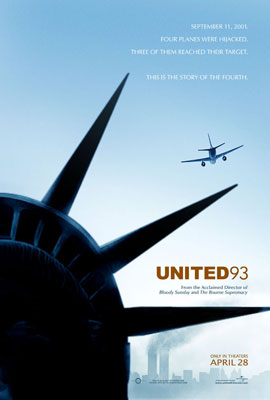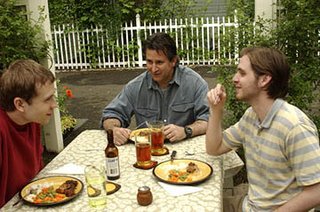DVD/VIDEO: Final Fantasy VII: Advent Children

My Rating: *** (out of *****)
Starring (vocal talents): Takahiro Sakurai, Ayumi Ito, Shotaro Morikubo, Keiji Fujiwara, Taiten Kusunoki
Directors: Tetsuya Nomura, Takeshi Nozue
My Review:
Eye candy. Plain and simple. That’s what Final Fantasy VII: Advent Children, a computer animated Japanese film based upon the popular game series of the same name, has to offer viewers. Certainly no more, but no less, either.
To even begin to attempt a plot summary would be ridiculous, for I do not have the advantage of being an avid game player, and as such, any effort on my part to reconstruct the plotline of this seventh (!) chapter in the Final Fantasy series would probably result in greater confusion for all. Suffice it to say, the so-called story has something to do with a young hero named Cloud, who reluctantly emerges from hiding to address the threat of a crippling disease call Geostigma that is infecting and devastating his home planet. Cloud is joined by a renegade gang of warriors, outlaws, and fighters, who, with Matrix-style outfits and action sequences, battle a mysterious trio of villains. All leads to a stunning grand finale in which Cloud must defeat an ancient and malevolent force that has, with the help of the aforementioned villains, materialized into a stringy-haired, sword-wielding soldier named Sephiroth.
If all of this sounds inane and utterly nonsensical, that’s because it is. Unless you are well-versed in Final Fantasy lore, don’t even bother to try and figure out what’s really going on with this story. Part of me doubts that there really is anything other than paper-thin constructs to convey us from one action sequence to the next. Also, Final Fantasy VII: Advent Children is presented in the style of classic Japanese anime, which means: poor dubbing, lots of miscellaneous grunts and groans, big-breasted female warriors, pervasive and murky spiritism, and a sometimes jolting amalgam of spectacular, balletic action and laughably hokey sentimentalism (In fact, the corniness of certain scenes results in some of the best laugh-out-loud moments I’ve experienced in a non-comedy movie). This film has all of this, and then some.
So, why the three-star rating? For what is basically a 101-minute video game “cinema,” Final Fantasy VII: Advent Children provides some of the most eye-popping CGI in recent memory. With this powerful tool firmly in hand, directors Nomura and Nozue construct several fantastic action sequences (clearly their strong suit) which unfold amidst a number of remarkable futuristic set pieces. As stated, the film sometimes begins to get bogged down in shoddy, mindless explanation or syrupy emotion, but never for too long. Just as we’re saying “Oh, come on,” the filmmakers remember why this movie exists and whisk us right back into the breathtaking action. A few fun action-movie one-liners also lend balance to the overly serious expository and revelatory moments. The final result is an extremely guilty pleasure, as forgettable and unsatisfying as cotton candy, but - because of its magnificent, jaw-dropping action and spectacle - just as enticing.
PG-13, for sequences of intense sci-fi action violence and some language






